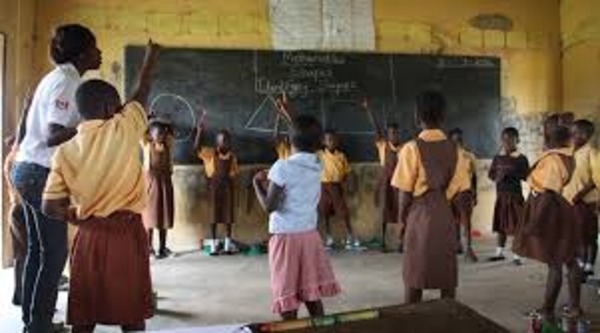A new global report has outlined practical, evidence-based solutions to tackle the growing literacy crisis affecting millions of children in low- and middle-income countries, including Ghana.
Titled “Effective Reading Instruction in Low- and Middle-Income Countries: What the Evidence Shows,” the report was launched on Thursday, October 30, 2025, during the ADEA Triennale in Ghana.
The study compiles insights from around 120 research papers—50 of which were conducted across Africa—and examines reading instruction across more than 170 languages.

Developed by the Global Education Evidence Advisory Panel (GEEAP), a multidisciplinary body of education experts co-hosted by the UK’s Foreign, Commonwealth & Development Office (FCDO), UNICEF, and the World Bank, the report highlights the urgency of addressing literacy gaps.
According to the 2022 World Bank State of Global Learning Poverty report, 70% of children in low- and middle-income countries cannot read and understand simple, age-appropriate text.
The figure rises sharply to 89% in Sub-Saharan Africa. An analysis of data from over 500,000 pupils across 48 countries revealed that after three years of schooling, more than 90% of learners could not identify basic letter sounds or read simple words.

The report argues that the crisis stems primarily from a failure to use proven teaching methods. It emphasizes that improving how teachers teach literacy—especially in the early years—could drastically reduce learning poverty, school repetition, and dropout rates.
“Too many children are in school but not yet learning to read,” said Pia Rebello Britto, UNICEF’s Global Director for Education and Adolescent Development. “Literacy is at the very core of a child’s learning journey, and investing in early reading skills is essential for lifelong learning and opportunity.”
Co-author Nompumelelo Mohohlwane, Deputy Director at South Africa’s Department of Basic Education, emphasized that literacy must be explicitly taught.
“Children don’t learn to read naturally. They must be systematically taught, and that applies to all languages, including African ones,” she said.
Luis Benveniste, World Bank Global Director for Education and Skills, added that literacy is “the foundation for lifelong skills and meaningful employment,” noting that early mastery improves learning outcomes and adaptability in future job markets.

The report identifies two key components critical for reading:
- Decoding: recognising written symbols and converting them into corresponding sounds.
- Language comprehension: understanding the meaning of words and sentences.
It recommends that children be explicitly taught six essential skills: oral language, phonological awareness, systematic phonics, reading fluency, reading comprehension strategies, and writing.
The GEEAP urges education policymakers to make a national commitment to evidence-based literacy instruction, ensure children learn in appropriate languages, and support teachers with structured training and resources.
Nathanael Bevan, Deputy Director of Research at FCDO, said the report offers “a practical, evidence-informed plan” adaptable to local contexts, languages, and cultures.
Following the launch, a how-to guide and translated versions of the report in Spanish, French, Arabic, and Hindi will be released in November.
Source: Adomonline
Read the full report below:


